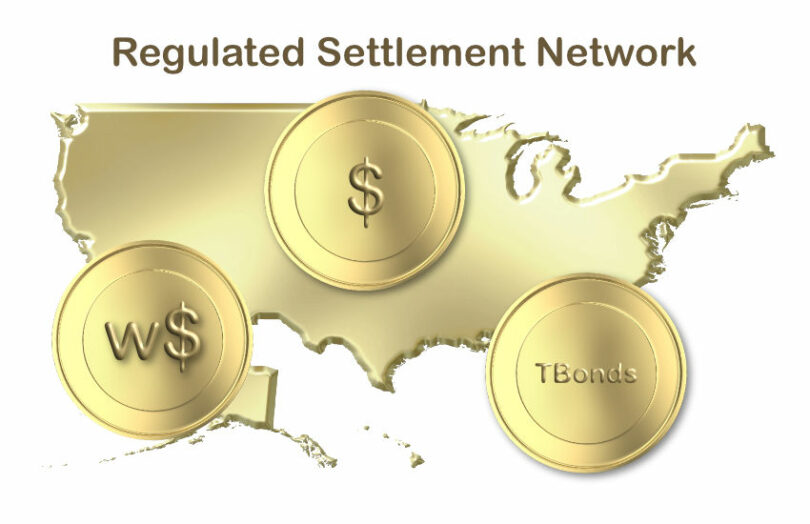Ten financial institutions including Citi and JP Morgan will participate in a distributed ledger (DLT) feasibility trial. It involves using tokenized deposits, wholesale central bank money, U.S. Treasuries and other tokenized assets on a shared ledger as part of the Regulated Settlement Network (RSN). The goal is to test settlement on a common regulated venue under existing laws by simulating USD delivery versus payment transactions.
The latest proof of concept (PoC) builds on an initiative last year involving several of the same institutions for the similarly named Regulated Liability Network (RLN).
One of the major additions is the two U.S. interbank tokenized deposit networks. The USDF Consortium is a participant and Tassat Group is a project contributor, potentially integrating with the shared ledger. Deloitte is providing advisory services and the group plans to engage vendors for technology and legal analysis.
The Securities Industry and Financial Markets Association (SIFMA) will act as the program manager for the proof of concept (PoC), taking on a role similar to that of UK Finance in the British trials.
Charles de Simone, Managing Director at SIFMA, said the initiative aims “to explore innovations working with digital forms of USD cash and securities, as market participants continue to innovate to support efficient, resilient capital markets.”
Beyond the ten participants, another six project contributors will provide subject matter expertise and could demonstrate connectivity between the shared ledger and external solutions. They include BNY Mellon, Broadridge, the DTCC, ISDA and Tassat Group, with the non profit MITRE Corporation also involved.
The New York Innovation Center (NYIC) at the Federal Reserve Bank of New York is also involved in a narrow role, purely as a technical observer.
RSN participants
The full list of participants are Citi, J.P. Morgan, Mastercard, Swift, TD Bank N.A., U.S. Bank, USDF, Wells Fargo, Visa, and Zions Bancorp.
“As blockchain technology continues to mature, it will be critical for public and private organizations to partner closely to explore how it can be applied to solve for real-world pain points and improve efficiencies,” said Raj Dhamodharan, EVP, Blockchain & Digital Assets at Mastercard. “The application of shared ledger technology to dollar settlements could unlock the next generation of market infrastructures – where programmable settlements are 24/7 and frictionless.”
While Mr Dhamodharan and some of the participants mentioned blockchain and DLT, SIFMA only referred to a “shared ledger”. We’ve previously noted that the BIS’s Unified Ledger may not use DLT because central banks prefer an infrastructure with central bank money to be centralized. Arguably, the RLN inspired the concept of a Unified Ledger and hence the RSN and Unified Ledger are similar.






